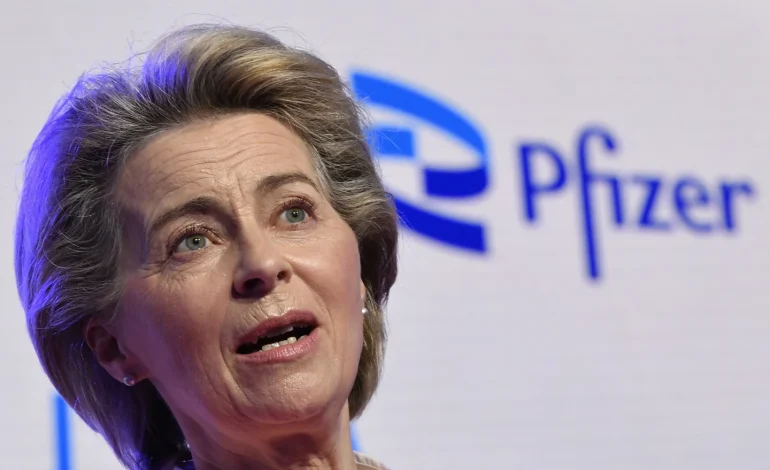A leading European court ruled Wednesday that the European Commission unlawfully refused to provide the New York Times access to text messages exchanged between Commission President Ursula von der Leyen and Pfizer CEO Albert Bourla during the height of the COVID-19 pandemic — a decision heralded by transparency advocates as a landmark victory, as per The AP.
In its decision, the EU General Court in Luxembourg found that the Commission failed to properly justify its refusal to release the text messages, which were requested by the U.S. newspaper under freedom of information rules.
“The Commission cannot merely state that it does not hold the requested documents,” the court said in its ruling. “It must provide credible explanations enabling the public and the court to understand why those documents cannot be found.”
The case centers on messages reportedly exchanged between von der Leyen and Bourla in early 2021 as the EU scrambled to secure billions of COVID-19 vaccine doses. While von der Leyen was publicly praising Pfizer as a “reliable partner,” the Commission was quietly finalizing a record 2.7 billion-euro ($2.95 billion) deal for over a billion doses. The negotiations came amid growing frustration over vaccine shortfalls from rival firm AstraZeneca.
The Commission had argued that such “ephemeral” communications — like text messages — do not necessarily fall under EU documentation laws. But the court rejected that stance, stating that the Commission failed to “plausibly explain” why the texts would not be considered official records or why they were no longer accessible.
“The Commission has not sufficiently clarified whether the requested text messages were deleted and, if so, whether the deletion was done deliberately or automatically,” the court added. It also questioned whether von der Leyen’s phone had been replaced, further muddying the trail of accountability.
The ruling is seen as a strong rebuke of the Commission’s secrecy and a turning point in the growing demand for institutional transparency.
“Today’s decision is a victory for transparency and accountability in the European Union, and it sends a powerful message that ephemeral communications are not beyond the reach of public scrutiny,” said New York Times spokesperson Nicole Taylor.
The Commission responded cautiously, saying it would review the decision and determine its next steps — including the possibility of appealing to the European Court of Justice, the EU’s highest legal authority. It has just over two months to make that decision.
“Transparency has always been of paramount importance for the Commission and President von der Leyen,” the Commission said in a statement.
But critics say the ruling exposes serious flaws in how the EU executive branch handles public access to information.










The latest news in your social feeds
Subscribe to our social media platforms to stay tuned